Ep. 86: Kathleen Kennedy, Executive Director of MIT Center for Collective Intelligence ||
.
On episode 86 we welcome Kathleen Kennedy, Executive Director of the MIT Center for Collective Intelligence. Kennedy is a frequent speaker at technology and entrepreneurship events around the world. She serves as a judge for many competitions including the MacArthur Foundation, the Inclusive Innovation Competition, and the Lemelson-MIT prizes. In addition, she is a venture partner at Good Growth Capital and she serves on the board of Hubweek.
.
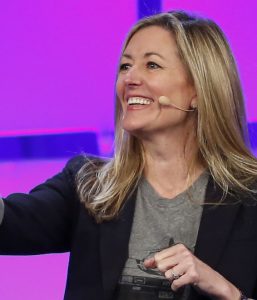 Prior to her current work, Kathleen served as a lead organizer of The Engine, an MIT initiative created to advance innovation. This venture fund and accelerator program was created to provide comprehensive support to transformative ideas from the formative stage to their most effective implementation. Kennedy was also awarded the Folio: 40, which recognizes the most innovative and influential people in the media industry, and named by the Harvard Club as one of Boston’s Most Influential Women of 2017.
Prior to her current work, Kathleen served as a lead organizer of The Engine, an MIT initiative created to advance innovation. This venture fund and accelerator program was created to provide comprehensive support to transformative ideas from the formative stage to their most effective implementation. Kennedy was also awarded the Folio: 40, which recognizes the most innovative and influential people in the media industry, and named by the Harvard Club as one of Boston’s Most Influential Women of 2017.
.
During our 45 minute discussion we evaluate how technology and automation will impact the future of food and its production. More generally, we discuss the future of work and how advancements / innovation doesn’t necessarily mean we’ll have less jobs in the future. We learn about how one of the first projects the MIT Center of Collective Intelligence initiated – called the ‘Climate CoLab’ – is using the UN’s Sustainable Development Goals (SDGs) as a proving grounds where computers and humans can work together in a more cohesive way to take on big problems at vast scale.
.
Joining as cohost is Chris Sherman, President of Island Creek Oysters. Focused on promoting the many values that shellfish bring to humans, the Oceans and the planet – Chris and his team have built a brand known for global excellence. As pioneers in regenerative ocean farming – Island Creek Oysters have established a sustainable model of sustenance, and jobs for their community in Massachusetts. Levering his ocean smarts to do greater good, Chris also curates the Island Creek Oyster Foundation, a non-profit which has codified a replicable model of aquaculture for the developing world. Additionally, Chris is a 2018 Eisenhower fellow. As part of his program to Spain & Columbia – Chris assessed capacity building and innovative financing models for the future of biomimetic aquaculture.
.
TuneIn to hear how a Collective Intelligence in many forms allows people and machines to work together in defining proper logic structure and smarter implementation that can help address the biggest problems facing humanity and our shrinking planet.
.
co-host:
Chris Sherman
- President of Island Creek Oysters
- Eisenhower Fellow 2018
- Regenerative Ocean Farming Pioneer
- Curator of ICO Foundation
@IslandCreek


 Using adaptive grazing is one important strategy to increase the soil health of our public grasslands and rangelands. For episode 85 of Sourcing Matters, consultant Greg Horner discusses his recent work interviewing innovative public land managers across the US about their use of adaptive grazing as a tool to improve soil health, restore ecosystem function, and increase biodiversity. While these agency staff are increasing soil health, they are also increasing soil carbon and making the land they manage more resilient to climate change.
Using adaptive grazing is one important strategy to increase the soil health of our public grasslands and rangelands. For episode 85 of Sourcing Matters, consultant Greg Horner discusses his recent work interviewing innovative public land managers across the US about their use of adaptive grazing as a tool to improve soil health, restore ecosystem function, and increase biodiversity. While these agency staff are increasing soil health, they are also increasing soil carbon and making the land they manage more resilient to climate change.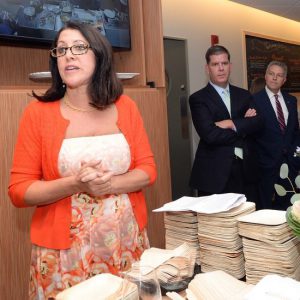 The Boston Public Market launched in 2015 as a year-round indoor market with the mission of bringing seasonal and local food to Boston’s downtown crowd. Everything sold at the market initially comes from somewhere in New England. This includes everything from seafood to ice cream and fresh produce. It is operated by the Boston Public Market Association, a nonprofit organization born from the collaboration between the city of Boston and the Commonwealth of Massachusetts.
The Boston Public Market launched in 2015 as a year-round indoor market with the mission of bringing seasonal and local food to Boston’s downtown crowd. Everything sold at the market initially comes from somewhere in New England. This includes everything from seafood to ice cream and fresh produce. It is operated by the Boston Public Market Association, a nonprofit organization born from the collaboration between the city of Boston and the Commonwealth of Massachusetts.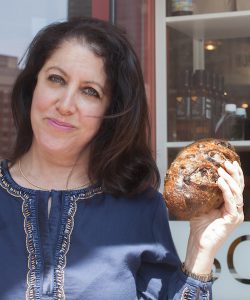
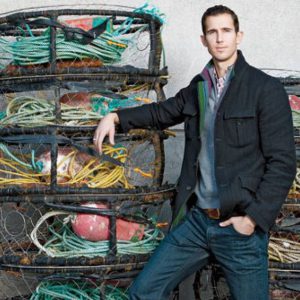 In 2008 Bamboo Sushi became the world’s first Marine Stewardship Council-certified sustainable sushi restaurant. Since, under Kristofor’s leadership Bamboo sushi has been promoting responsible fisheries and sustainable management practice for the betterment of the environment and his patrons. TuneIn to our 40 minute discussion to learn what’s happening to our seas, and to our seafood. To understand how we can take a lead role in determining the health and stability of our oceans through the food choices we make. And to hear how this entrepreneur is building a sustainable business model focused on benefiting diverse stakeholders ranging from his fisherman, processors, employees, investors and consumers.
In 2008 Bamboo Sushi became the world’s first Marine Stewardship Council-certified sustainable sushi restaurant. Since, under Kristofor’s leadership Bamboo sushi has been promoting responsible fisheries and sustainable management practice for the betterment of the environment and his patrons. TuneIn to our 40 minute discussion to learn what’s happening to our seas, and to our seafood. To understand how we can take a lead role in determining the health and stability of our oceans through the food choices we make. And to hear how this entrepreneur is building a sustainable business model focused on benefiting diverse stakeholders ranging from his fisherman, processors, employees, investors and consumers.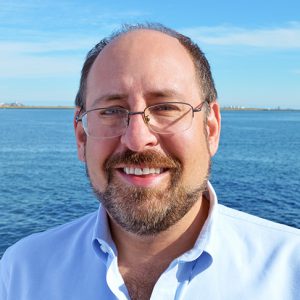 Stavis is also a leading importer into the Florida seafood market specializing in fresh seafood from Central & South America. Stavis Seafoods recently launched seafood line ‘SeaTru’ that comes in tow with the tagline of “high-quality seafood that is completely traceable, socially responsible, and sustainably sourced.”
Stavis is also a leading importer into the Florida seafood market specializing in fresh seafood from Central & South America. Stavis Seafoods recently launched seafood line ‘SeaTru’ that comes in tow with the tagline of “high-quality seafood that is completely traceable, socially responsible, and sustainably sourced.”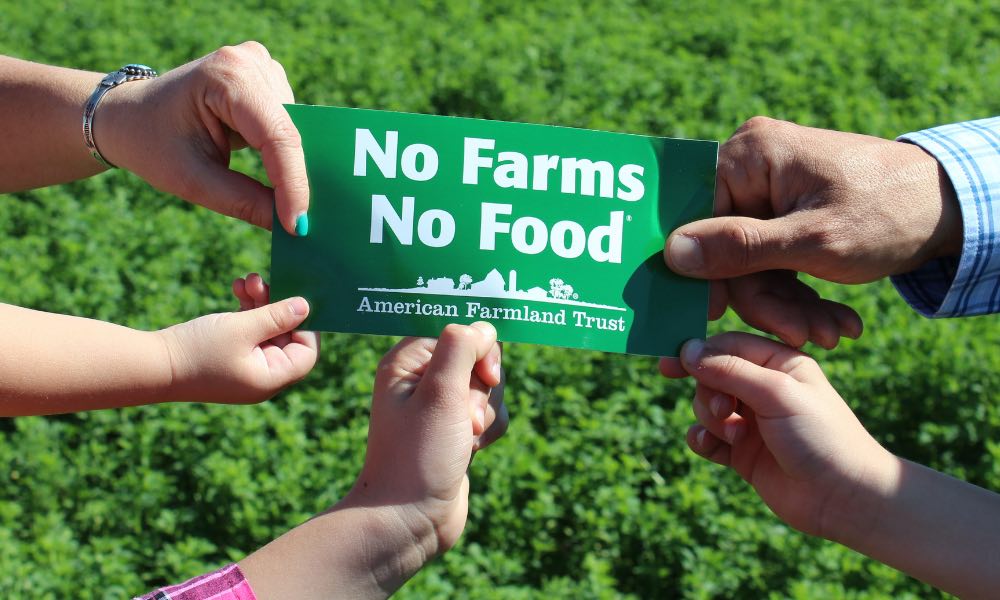
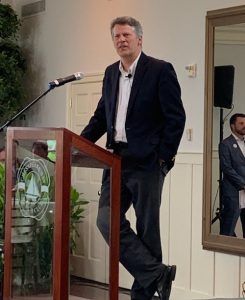 John Piotti joined American Farmland Trust as president and CEO in July 2016, bringing more than 25 years of executive management and public policy experience to the organization. Prior, John served as president and CEO of Maine Farmland Trust for 10 years. Under his leadership, Maine Farmland Trust became an award-winning statewide nonprofit organization, helping over 500 Maine farms remain viable. Piotti has earned a reputation as a nonpartisan problem-solver; as a Statesman, an Eisenhower Fellow – and – as a leader in future food that has helped stabilize a regional dairy industry, and procure funding to protect working waterfronts & our natural lands. John holds three degrees from the MIT, in engineering, public policy, and management.
John Piotti joined American Farmland Trust as president and CEO in July 2016, bringing more than 25 years of executive management and public policy experience to the organization. Prior, John served as president and CEO of Maine Farmland Trust for 10 years. Under his leadership, Maine Farmland Trust became an award-winning statewide nonprofit organization, helping over 500 Maine farms remain viable. Piotti has earned a reputation as a nonpartisan problem-solver; as a Statesman, an Eisenhower Fellow – and – as a leader in future food that has helped stabilize a regional dairy industry, and procure funding to protect working waterfronts & our natural lands. John holds three degrees from the MIT, in engineering, public policy, and management.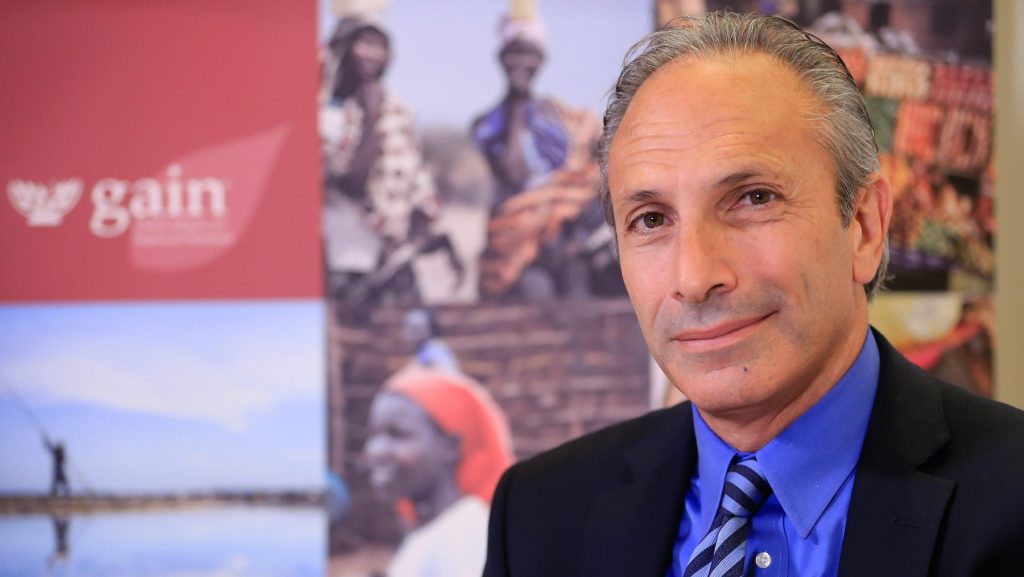 .
.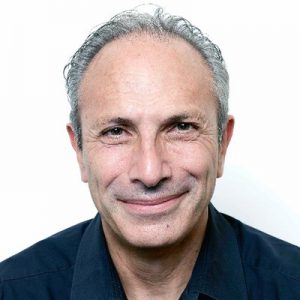 Dr. Lawrence Haddad became the Executive Director of GAIN in October 2016. Prior to this Lawrence was the founding co-chair and lead author of the Global Nutrition Report from 2014 to 2016. From 2004-2014 Lawrence was the Director of the Institute of Development Studies (IDS), the world’s leading development studies institute. Before joining IDS in 2004, he was Director of the Food Consumption and Nutrition Division at the International Food Policy Research Institute (IFPRI) from 1994 to 2004. An economist, Lawrence has a PhD in Food Research from Stanford University. Most recently, in June of 2018 – the World Food Prize Foundation awarded Dr. Haddad the 2018 World Food Prize.
Dr. Lawrence Haddad became the Executive Director of GAIN in October 2016. Prior to this Lawrence was the founding co-chair and lead author of the Global Nutrition Report from 2014 to 2016. From 2004-2014 Lawrence was the Director of the Institute of Development Studies (IDS), the world’s leading development studies institute. Before joining IDS in 2004, he was Director of the Food Consumption and Nutrition Division at the International Food Policy Research Institute (IFPRI) from 1994 to 2004. An economist, Lawrence has a PhD in Food Research from Stanford University. Most recently, in June of 2018 – the World Food Prize Foundation awarded Dr. Haddad the 2018 World Food Prize.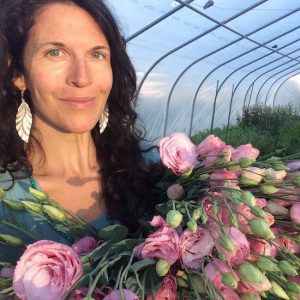 Stone Barns Center for Food and Agriculture was developed by David Rockefeller and dedicated to the memory of his wife, Peggy Rockefeller. The Stone Barns Center’s mission is to demonstrate, teach and promote sustainable, community-based food production. Open to visitors of all ages but with an emphasis on K-12 education, the Center offers a unique experience: a chance to learn about farming firsthand on a real working farm within a 30-minute drive of New York City. Livestock, chickens, vegetables, gardens, greenhouses a learning facility and cultural center demonstrate to the public the advantages of local, community-based farming and environmentally sensitive agricultural practices. The Center is also home to Blue Hill at Stone Barns, a four star restaurant that offers guests a taste of the farm and of the Hudson Valley.
Stone Barns Center for Food and Agriculture was developed by David Rockefeller and dedicated to the memory of his wife, Peggy Rockefeller. The Stone Barns Center’s mission is to demonstrate, teach and promote sustainable, community-based food production. Open to visitors of all ages but with an emphasis on K-12 education, the Center offers a unique experience: a chance to learn about farming firsthand on a real working farm within a 30-minute drive of New York City. Livestock, chickens, vegetables, gardens, greenhouses a learning facility and cultural center demonstrate to the public the advantages of local, community-based farming and environmentally sensitive agricultural practices. The Center is also home to Blue Hill at Stone Barns, a four star restaurant that offers guests a taste of the farm and of the Hudson Valley.
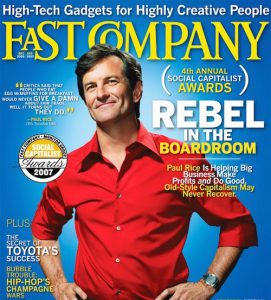 Twenty years later, Fair Trade has grown into a widely-known and increasingly mainstream consumer trend that is rapidly approaching an inflection point. In 2016, consumer recognition of the Fair Trade Certified label reached 67% and U.S. retail sales of Fair Trade products grew to an estimated $6 billion. Paul and his team have enlisted the support of over 1,300 companies, including market leaders like Green Mountain, Starbucks, Nespresso, General Mills, PepsiCo, Whole Foods, Costco, Target and Walmart. Fair Trade USA now certifies coffee, tea, cocoa, sugar, coconut, fresh fruits and vegetables. Most recently, through groundbreaking partnerships with Patagonia, West Elm and Gap Inc., Fair Trade has begun certifying apparel and home furnishings to improve working conditions and incomes for factory workers.
Twenty years later, Fair Trade has grown into a widely-known and increasingly mainstream consumer trend that is rapidly approaching an inflection point. In 2016, consumer recognition of the Fair Trade Certified label reached 67% and U.S. retail sales of Fair Trade products grew to an estimated $6 billion. Paul and his team have enlisted the support of over 1,300 companies, including market leaders like Green Mountain, Starbucks, Nespresso, General Mills, PepsiCo, Whole Foods, Costco, Target and Walmart. Fair Trade USA now certifies coffee, tea, cocoa, sugar, coconut, fresh fruits and vegetables. Most recently, through groundbreaking partnerships with Patagonia, West Elm and Gap Inc., Fair Trade has begun certifying apparel and home furnishings to improve working conditions and incomes for factory workers.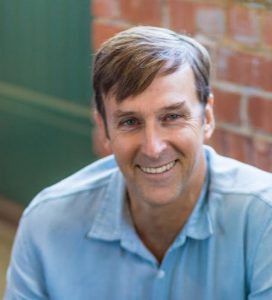 John Roulac started natural and superfoods brand Nutiva in 1999 because of his deeply held belief that it is his purpose to challenge the industrial food model and create a better food system to nourish people, communities, and our planet. Through his leadership, Nutiva has become one of the fastest-growing superfoods company in the world. Nutiva has been named one of Inc. Magazine’s fastest-growing private companies in America for seven years in a row – with sales topping $100mm in 2015.
John Roulac started natural and superfoods brand Nutiva in 1999 because of his deeply held belief that it is his purpose to challenge the industrial food model and create a better food system to nourish people, communities, and our planet. Through his leadership, Nutiva has become one of the fastest-growing superfoods company in the world. Nutiva has been named one of Inc. Magazine’s fastest-growing private companies in America for seven years in a row – with sales topping $100mm in 2015.